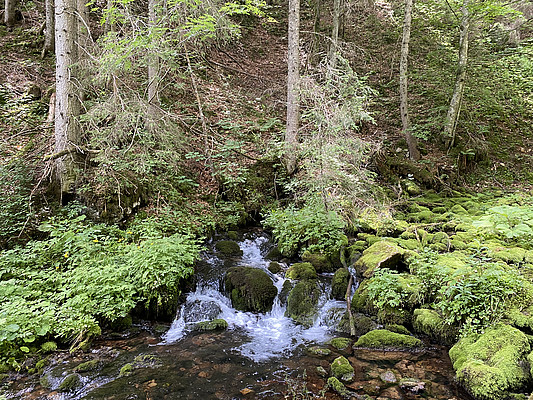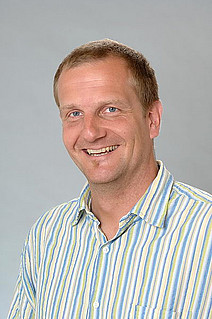ECOSPRING (OEAW-ESS 2021; 2023-2025)
ECOSPRING "Qualitative and quantitative impact of climate change on alpine spring waters and their microbial biodiversity – an eco-hydrogeological approach " (OEAW-ESS)

Foto: G. Winkler
Climate change is expected to have a significant impact on the hydrology of alpine regions and thus, alpine freshwater resources and biodiversity hotspots are under an increasing pressure. Alpine spring waters fed by groundwater are a crucial resource for water supply and the alpine ecosystems. The impact of climate change on its runoff pattern including future predictions has rarely been addressed so far. The monitoring of springs as currently operated focuses primarily on physical-chemical indicators ignoring the biodiversity of microbial communities as key ecosystem functions. Thus, the overall aims of this project are to quantify the impact of climate change on spring water runoff pattern, to establish a first comprehensive dataset for the microbial biodiversity of Austrian alpine spring waters with respect to their catchment characteristics and to apply microbial community pattern as an environmental tracer with regard to the transient water quality and to spring catchments.
Therefore, targeted investigations at springs will be conducted at a regional and a local scale. A spring discharge classification will be developed based on analysis of hydrological long-term data from some 90 springs distributed over entire Austria. Delineation of the spring catchments and coupled rainfall-runoff and isotopic modelling approaches will enhance the quantification of the spring discharge responses, with respect to different climate change scenarios considering in particular snow cover dynamic changes. Time series analysis and multivariate statistics will be applied to advance the current understanding of the interrelation of spring water quantity responses to hydrometeorological extremes (e.g. droughts), and to correlate hydrological and hydrochemical (e.g. electric conductivity) trends. In addition, all spring waters will be sampled twice to characterize their microbial communities during low and high flow conditions and derive seasonal spring-specific signatures. At local scale three springs with different catchment settings (e.g. geology, elevation) will be selected for an extended monitoring to identify the seasonal and short-term variability and changes of the microbial signatures. This includes temporal high-resolution sampling of spring water for hydrochemical and stable water isotope analysis, as well as the characterization of water quality components (e.g. dissolved organic carbon content). Microbial measures of biomass, activity, and biodiversity will complement the monitoring. After evaluating different hydrogeological and ecological indicators and indices separately, recommendations will be developed for an integrated eco-hydrogeological classification. The linkage between the microbial communities of the recharge components entering the aquifer system (input; e.g. microbes in the snow cover) and the microbial communities in spring waters (output) will support the catchment characterization as individual microbial species and groups may act as a time-integrating bio-marker and thus as an environmental tracer. Future potential application of our eco-hydrogeological approach for a sustainable water resource management will depend on acceptance in water policy and practice. Thus, key stakeholders and federal authorities will be involved right from the beginning.
Research cooperations: Christian Griebler (University of Vienna), Michael Avian (Geosphere Austria), Martha Stangl (CCCA)
Acknowledgment
The project is a OEAW-ESS Project.
Gerfried Winkler
 Institut für Erdwissenschaften
Institut für ErdwissenschaftenHeinrichstraße 26, 8010 Graz
